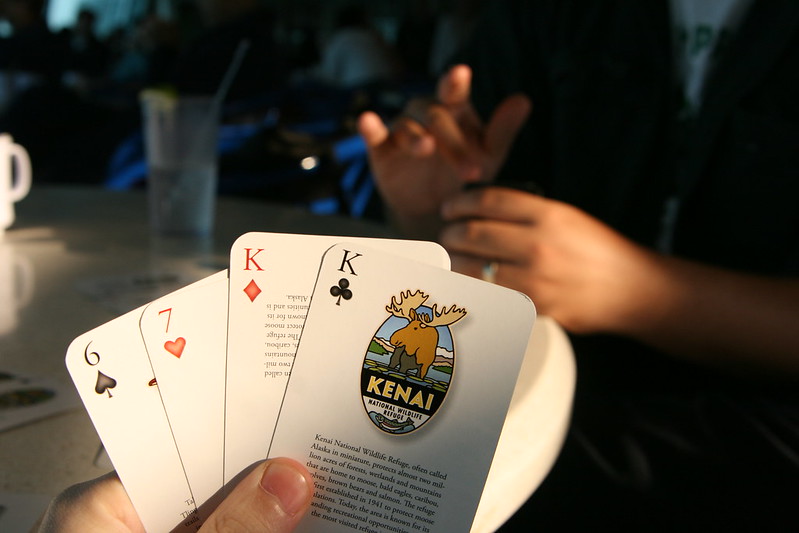
Image Credit: Quinn Dombrowski
As I’m pretty sure we all know, every negotiation that we engage in is all about information. What do we know, what don’t we know. For that matter, what does the other side know and what don’t they know? We all do our homework before the negotiation starts so that we’ll have as much information as possible. However, there is always the question of how much we should reveal to the other side during the negotiation. Just exactly how close to the chest should we be playing our cards? What should we reveal and what should we keep private?
Any Information That Is Sensitive Or Privileged
You have some tough decisions to make when it comes to this type of information. No matter what negotiation styles or negotiating techniques you are using, you may struggle trying to decide whether to disclose private or sensitive information, such as trade secrets and financial data, as well as your preferences (targets, reservation prices, interests and needs). We need to realize that this information is often necessary to identify tradeoffs and create value, but there’s also the risk that the other side will take advantage of your disclosure.
You come to a negotiation with information about the other party or about the deal (industry facts, economic health, new products, and so on) that they might not know that you have. You want to gain some measure of the other side’s trustworthiness. You can do this by planting a “trust landmine”: ask some questions to which you already know the answers. If they avoid your information requests or if they lie outright, that’s one sign that you should be careful about what you reveal – or perhaps call off the talks altogether.
You need to realize that someone who answers a few questions truthfully might not always behave honestly. You can use trust landmines to offer a reasonably good way of determining if a person is leveling with you.
Sharing Information That Isn’t Yours To Share
There will be times that you are negotiating as someone’s agent – you may be a lawyer, a broker, or a representative – disclosure decisions may not be yours to make. In these cases, you’ll first need to discuss the risks and benefits discussed here with your principal. You need to understand that even if the information doesn’t technically “belong” to someone else, disclosure might hurt that person. As an example, suppose you’re negotiating a purchase from one supplier. You might be tempted to disclose another supplier’s bottom line – but it might be wise to consult this party first.
Any Information That Might Diminish Your Power
Negotiations are all about power. We don’t always show up with more power than the other side. In the case that you have less power than the other side, think through the potentially negative consequences of making “information concessions.” A good example of this is physically injured plaintiffs who often are tempted to offer information about their current injuries in return for an early settlement, though they might procure greater damage awards later if longer-term injuries emerge. If you are participating in an overheated real-estate market, the bidder who expresses the greatest desire for a given house risks being exploited by a seller with multiple offers. You need to evaluate whether your desire for a given outcome might cause you to reveal too much and be exploited.
Change Happens And Information May Fluctuate
We all understand that in a negotiation, nothing ever remains constant. What this means is that “facts” may change over time; prices and preferences most defiantly will. When information that is important seems unstable, you might choose to wait to reveal it or else seek a deal provision to later modify the information you share. During a negotiation contractual contingencies allow you and the other side to “bet” on your differing predictions; you also can add clauses that permit renegotiation should facts or conditions change.
What All Of This Means For You
In every principled negotiation that we participate in, information is power. The person who has the most information has the most power. We’d like to be that person. However, we also understand that in order to move things along and to be able to reach a deal with the other side, we will at times have to reveal things to the other side. However, this brings up the good question: what should we reveal and when should we reveal it?
During a negotiation you may realize that some of the information that you have is either sensitive or even privileged. This kind of information can be used to determine if you can really trust the other side. When we are negotiating for someone else, we may not be in a position to share information that is not ours. We need to carefully check with other people before sharing this type of information. Since power is the key to conducting a successful negotiation, we need to understand that we don’t want to share any information that would weaken our position. Additionally, we need to determine if the information that we might share could change. If it can, then we might want to hold off until a later time before sharing.
We’d always like to be the one with the power when we are in a negotiation. This means that we’d like to be the ones with all of the information. However, in order to make a deal happen, we always have to reveal some of what we know to the other side. What we reveal is something that we have to take a careful look at. Make sure that you understand the importance of the information that you have before you decide to put it on the negotiating table.
– Dr. Jim Anderson
Blue Elephant Consulting –
Your Source For Real World Negotiating Skills™
Question For You: If you are going to be revealing somebody else’s information, do you think that you need to get their permission in writing?
P.S.: Free subscriptions to The Accidental Negotiator Newsletter are now available. Learn what you need to know to do the job. Subscribe now: Click Here!
What We’ll Be Talking About Next Time
As negotiators, our job during a negotiation is to understand what the other side is looking for and then make them an offer. The offer that we present to them will hopefully be what we consider to be a great deal for them. However, sometimes after we’ve made the offer, we’ll get the impression that the other side does not agree that the offer is all that good. Why do we have a problem here? It turns out that your offer may be excellent; however, it’s how you’ve approached framing in the negotiation that’s holding you back.

